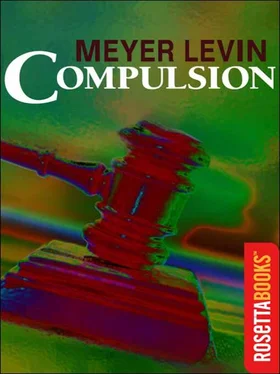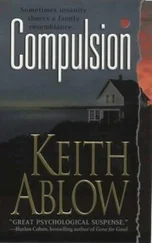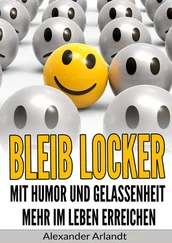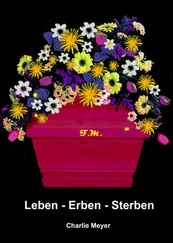He came around to Artie’s side. The laughter had stopped. Artie’s head was against the back of the seat; his eyes were closed.
“Move over. I’ll drive.”
Artie swayed over, limp and warm-feeling in his racoon coat. Judd slipped in and closed the door.
It was one of those times when you couldn’t tell if Artie had really passed out or was only letting things happen. The deal.
In Michigan City, a diner was open. Artie, in high spirits, gabbed of the stunts they could pull off, now and then letting a word like “hi-jack” escape loud enough for the waitress to hear. There was Ned White’s house in Riverside. His folks had a cellar full of the best stuff straight from Canada. A couple of cases would be worth a couple of centuries. Maybe they could let Ned in on the job. No, Judd objected, Ned was a pet hate of his – a bore. Okay, Artie had a better idea: let Ned in on the job and then plug him. He was a snot anyway.
Then they started on pet hates, who shouldn’t be allowed to exist. They took turns naming candidates, beginning with Morty Kornhauser. And the blackballing president of the chapter, Al Goetz – Artie said they ought to shoot his balls off. And they named a prof or two, and William Jennings Bryan. And how about including females, Judd said, the old bitch who had spoiled his all-A average with her B in Medieval History. Sure, Artie said, and his own bitch of a governess, Miss Nuisance, he had always wanted to kidnap and torture her, “Cut her tits off!” Judd said. And it was like splashing, splashing, and he was tittering, and Artie said in a solemn voice, “Kidnapping, that’s the thing to do – pull off a snatch. That would be the real trick, a snatch for a big wad.”
“How about Myra?” Judd suggested, seeing the German soldiers, the French girl dragged by the hair. “And rape her for the hell of it.”
“Rape?” Artie laughed suggestively. “She’d beat you to it.” Then serious again: “A boy is better. A kid.”
And suddenly now in his room, as Judd sat waiting, his blood pounding with the exciting remembered images, the lights snapped on and a rough voice demanded, “Okay, Steiner, where’s that typewriter?”
He didn’t show, he knew he hadn’t shown, the leap in him. Yet it had been a dreadful leap of fear, before he told himself it was Artie.
Judd said, “What took you so long, you sonofabitch?”
Artie said that Myra had called just as he was leaving – she was alone, so he had to stop by and give her one. A man had to keep his girl serviced. He was in high humour. “Boy, you should have been at the house for dinner!” He told of his mother discussing the big murder. “The murderer ought to be tarred and feathered and then strung up, she said! I nearly stood up and announced, ‘Mater, I cannot tell a lie, it was me!’”
“Why didn’t you?” Judd said, his voice soft, Artie’s nearness almost uncontainable to him. “They wouldn’t believe you anyway.”
“Hey, how about if I try it? Confess to the cops!” Artie bet that was what Steger was doing right now! His words tumbled on. He’d met that punk reporter, Sid Silver. “Boy, did I fill him with crap about Steger.” And Sid had told him about the third degree, the tricks the cops used so as to leave no marks.
As Artie talked, he picked up the typewriter. “Let’s get rid of this goddam evidence.” He began to twist at the keys. “Hey, got a pliers or something?” Judd had a pair in his desk, but the keys were springy, his fingers got nipped, and he squealed. He never could stand physical pain. Artie laughed. “My God, you’re bawling!”
It was more than Judd could endure. After the way he had worked himself up with all that waiting, and now Artie was throwing the typewriter on the floor, jumping on it. “Cut it out! You want the goddam maid in here?”
It was odd how the machine seemed indestructible. “We better throw it in the lake,” Artie said. “This won’t come up and float.”
“Okay.” Judd put the cover on the machine. And in that instant he remembered the robe, the bloody robe, hastily thrown into the bushes last night, after burning the kid’s clothing in the furnace. How could they have been so stupid! And in that moment the first ghastly doubt of their cleverness spread through Judd. The spectacles could have been an accident. But the bloody robe lying in the open all day, with the neighbourhood filled with police! Then, if they weren’t really so clever, if they weren’t really superior – if they were just anybodies, where was their right to do what they had done?
It was a misty night, the sky almost milky, the air awesomely silent. They drove rapidly to Artie’s. Judd told himself that if the robe were still there it would be a sign that they’d get away with the whole thing.
The robe lay, a dark clod under the bush.
They drove into the park. Along the lake the cars stood, each with its mingled shape of lovers. Judd circled the old World’s Fair building. Behind the building was a little bridge over the lagoon. They parked the car, and walked out together, Judd carrying the typewriter. Not a soul around. No lovebirds, even.
They stood on the little bridge. He could feel Artie leaning beside him. In daylight you could see the bottom through the shallow water. “Hell, it’ll sink in the mud,” Artie said. He took the machine from Judd and was about to drop it.
“It’ll splash,” Judd warned. Suppose some damn cop happened to be attracted by the sound.
“Drowning kittens, sir,” Artie said. “This is where I always drown my kittens.” He let the machine fall. The plop was small.
They were almost free now of every thread to the thing. There was only the robe. It might float. Best to burn it somewhere, drive out where there’d be nobody around. Maybe the dunes.
Going south, they passed the marker where they should have caught the ransom only that afternoon. The building loomed vague in the mist. Artie slumped in his seat, subdued. Judd came to a turn: leftward led to the lake; right, to the Hegewisch swamp. And he felt Artie beside him blaming him, and he felt it was true, something in himself had betrayed them. Why had he insisted so on the swamp, when Artie would have chosen the lake? Why had it had to be that one place, the cistern under the tracks?
He drove on a side road the short distance to the lake. The mist has lifted a little; you could see a few stars, and the flame licks from the steel-mill furnaces.
There was a stretch of crummy beach here, littered with cinders and junk. They were in luck: the area was deserted. Artie lugged the robe, a huge dark wad under his arm. Judd gathered some pieces of wood and tried to build a fire.
“You’re a hell of a Boy Scout,” Artie said, and arranged the sticks in tepee form, so they would burn. Then they put the robe into the fire. Smudge and smoke arose; the flames were almost smothered “Hell, we should have brought some kerosene. This’ll take all night,” Artie said.
If the fire would only burn off the blood, they could leave the charred rag. Artie lay down on the cindery sand, limp, as though suddenly pooped of everything, the way he was sometimes, limp, passive. Momentarily Judd felt the stronger, felt better about everything.
Now at last everything was in the clear. The robe was burning, and even if found, who should ever imagine the boy’s body had been held in it? To all things material, he was superior. He was a mind. Why had he wept and been scared yesterday at the moment of the blow? Judd wanted now to say something to Artie, to say he hadn’t really been himself, to say he was recovered now, was beyond that kind of weakness.
“Hey, Mac,” Artie murmured. “All we need is some wieners, huh, and we could have a wienie roast.”
“Yah, Charley,” Judd said. He never was sure with Artie. Even after a couple of years. He lay down alongside, his face toward the fire.
Читать дальше












